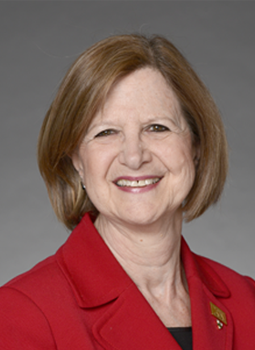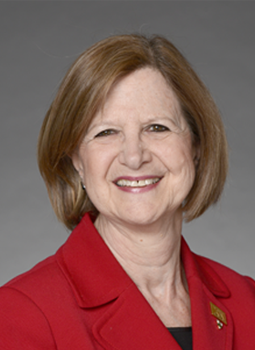In my last column, I shared news about how RNAO continues to influence health system transformation by supporting Best Practice Spotlight Organizations (BPSO) applying to join Ontario Health Teams (OHT). I talked about how RNAO is proud to provide letters of support to BPSOs – our dedicated partners in best practice guideline (BPG) implementation – to begin their journey to join these newly established interprofessional and intersectoral teams. With the creation of OHTs by the government of Ontario, we will break the habit of working in silos. It is a prime opportunity to further advance evidence-based care.
To continue supporting BPSOs involved in the rigorous OHT application process, we launched the BPSO OHT model – a first-of-its-kind – to ensure OHTs, and particularly the staff working in them, are equipped with the tools and supports they need to lead and deliver evidence-based care across the health continuum. For this initiative, RNAO has partnered with four OHTs, including North Western Toronto (NWT), East Toronto Health Partners, Southlake Community, and the Ottawa East Health Team. All submitted full applications to government on Oct. 9.
"The goal of the BPSO OHT model is to optimize patient outcomes through evidence-based practice and robust staff engagement."
Agreements have been signed that specify the BPSO OHT deliverables and RNAO supports. During our four-year partnership, each BPSO OHT will implement four RNAO BPGs. Two are mandatory, Person- and Family-Centred Care (third edition, 2015) and Care Transitions (second edition for release in 2020), and the other two will be chosen by the OHT, based on its clinical priorities.
To allow members a ‘peek through the window,’ let me share what has happened to date with NWT, the first BPSO OHT that signed the partnership agreement with RNAO. NWT is comprised of 13 organizations: Addiction Services for York Region, Black Creek Community Health Centre, Canadian Mental Health Association, Cota, Humber River Family Health Team, Humber River Hospital (a BPSO), Loft Community Services, Lumacare, Runnymede Healthcare Centre, SE Health (a BPSO), Unison Health and Community Services, Villa Colombo (a BPSO), and West Park Healthcare Centre (a BPSO).
In addition to implementing the two mandatory BPGs, all 13 organizations will implement Preventing Falls and Reducing Injury from Falls (fourth edition, 2017) as one of their two additional BPGs. Eight have also chosen Assessment and Management of Pressure Injuries for the Interprofessional Team (third edition, 2016) as their fourth, and the remaining five will implement Engaging Clients Who Use Substances (2015).
As noted above, four NWT partner organizations are already BPSOs – some since the program’s inception in 2003. They have implemented BPGs in home care, hospital care, rehabilitation and long-term care. This new BPSO OHT partnership will allow our experienced BPSOs to act as mentors to their OHT colleagues, who have committed to becoming active participants in our BPSO movement.
In August, we were proud to host the second meeting of this group at RNAO. We talked about deliverables, as well as roles and expectations of the group. The team has been hard at work developing an action plan that includes capacity building, implementation of BPGs, dissemination and evaluation. These are the four pillars that form the foundation to attain BPSO designation, which, after four years of qualifying, the remaining nine NWT OHT organizations will achieve. In fact, they will collectively receive RNAO’s first-ever BPSO OHT designation at our 2023 annual general meeting.
In August, Susan McNeil, senior manager, implementation science, joined me in emphasizing with the core group that RNAO’s coaching will be about capacity building and staff engagement. While OHT CEOs and executive team members will tackle issues related to a common vision, shared governance, alignment of strategic direction, and eHealth imperatives to enable continuous care and smooth transitions across sectors; our role as BPSO OHT is to ensure staff from all professions – regulated and unregulated – are powered through robust engagement to lead and deliver excellence in clinical care through the use of evidence.
Our team can’t wait for Dec. 2 and 3, when we will bring together 130 front-line staff from all 13 NWT organizations for their first face-to-face champions training. We can’t wait to see them working together across disciplines and sectors in a joint effort to learn how to champion evidence-based care. It’s exhilarating to envision their excitement, and to imagine that excitement spreading to others, ultimately leading to positive change for patients and staff.
Together we are trailblazers in the BPSO OHT movement, and we will mark a path that others are sure to follow as more OHTs are announced.


